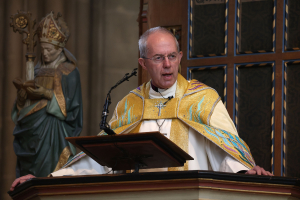Christian school denied exemption from Maine's LGBT discrimination requirements for tuition program

A Christian school in Maine must adhere to the state's LGBT antidiscrimination policy to qualify for a state tuition assistance program while the lawsuit against the state continues, a federal judge has ruled.
U.S. District Judge John Woodcock, a George W. Bush appointee, denied a preliminary injunction Tuesday requested by Bangor Christian Schools run by Crosspoint Church, concluding that the church's lawsuit against assorted state officials is not likely to succeed.
He ruled that Bangor Christian Schools must follow all the Maine Human Rights Act provisions.
"The Court determines that the educational antidiscrimination provisions do not violate the Free Exercise Clause because they are neutral, generally applicable, and rationally related to a legitimate government interest," wrote Woodcock.
"The Court concludes further that the educational provisions do not violate the Free Speech Clause because they regulate conduct, not speech. Finally, the Court concludes that the employment provisions do not proscribe any constitutionally protected conduct."
First Liberty Institute Senior Counsel Lea Patterson, who represents Crosspoint, denounced the decision and expressed plans to appeal the ruling.
"Government punishing religious schools for living out their religious beliefs is not only unconstitutional, it is wrong," said Patterson, as quoted by Bangor Daily News.
In 2022, the U.S. Supreme Court ruled 6-3 in Carson v. Makin that Maine cannot lawfully stop parents from using a state tuition program to send their children to Christian private schools.
The lawsuit that led to the Supreme Court ruling was driven by parents from Bangor Christian School who sued Maine over the ban on state tuition assistance for families sending their children to a private school that includes sectarian aspects in its curriculum.
In response to the high court ruling, Maine Attorney General Aaron Frey said that BCS was still ineligible for the program because of its conservative religious stance on LGBT issues. Crosspoint requires staff and students to support a biblical stance on marriage and sexuality, which includes a rejection of homosexuality, same-sex marriages and transgender ideology.
"The education provided by the schools at issue here is inimical to a public education," claimed Frey, a Democrat, in a statement last year. "They promote a single religion to the exclusion of all others, refuse to admit gay and transgender children, and openly discriminate in hiring teachers and staff."
Frey promised to "explore with Governor Mills' administration and members of the Legislature statutory amendments to address the Court's decision and ensure that public money is not used to promote discrimination, intolerance, and bigotry."
In response, Crosspoint sued state officials over the requirement that the private school adhere to Maine's antidiscrimination policy on LGBT issues.
The complaint labeled the state standards a "poison pill" and that "BCS was no longer eligible to participate in the tuitioning program, and eligible families could no longer use their tuition benefit at BCS."
"Thus the sectarian exclusion operated to allow religious schools to participate in the tuitioning program if, and only if, they held religious beliefs the State approved," the lawsuit continued.
"Putting Plaintiff to the choice of participating in a generally available benefit program or surrendering its constitutionally protected religious exercise penalizes its religious exercise and constitutes a substantial burden."





























